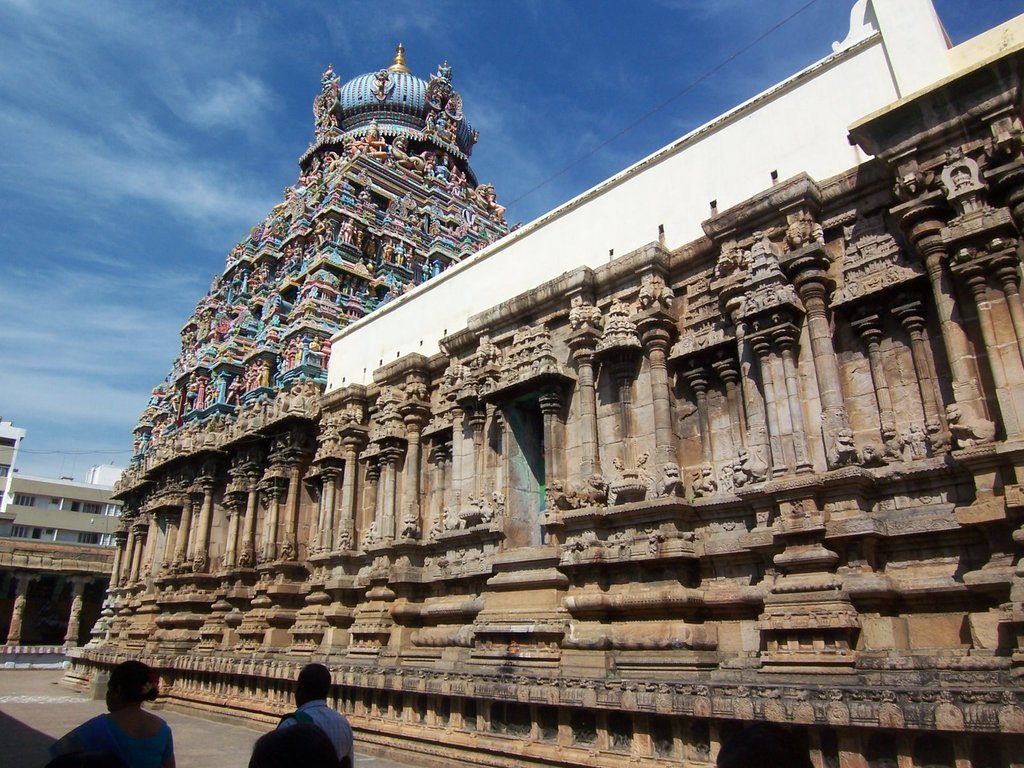
The Koodal Azhagar Temple, also known as Sri Koodal Azhagar Perumal Temple, is a famous Hindu temple located in Madurai, Tamil Nadu, India. Devotees dedicate it to Lord Vishnu, who they worship here in the form of Koodal Azhagar, a reclining posture. The temple stands as one of the 108 Divya Desams, which the Alvars, the ancient Tamil poet-saints, revere as sacred shrines.
Here are some key features and information about the Koodal Azhagar Temple:
Deities: The presiding deity of the temple is Lord Vishnu in his reclining form known as Koodal Azhagar. Lord Vishnu in his reclining form known as Koodal Azhagar presides over the temple. Artists beautifully adorn the idol with jewels, and devotees see it resting on the serpent Adisesha. The sanctum also houses the deities of Goddess Lakshmi and Goddess Andal.
Sacred Tanks: The temple complex has two sacred tanks known as the “Anantha Saras” and the “Sivaganga” tank. Devotees take ritual baths in these tanks as a part of their religious observances.
Best Time to Visit
Madurai has a hot tropical climate. It is a destination that can be visited any time of the year. However, for the best experience, visit the destination during December to February.
The Koodal Azhagar Temple, located in the heart of Madurai, Tamil Nadu, stands as an epitome of Dravidian architecture and a testament to the region’s rich cultural heritage. Dedicated to Lord Vishnu, this temple is revered by devotees across India and is one of the 108 Divya Desams.
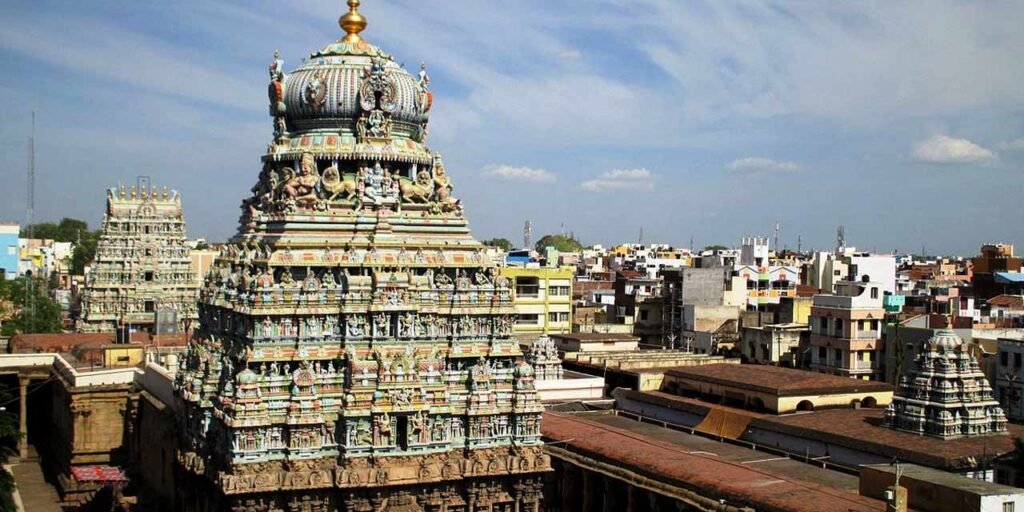
Early Beginnings and Legends
Historical Significance: The Koodal Azhagar Temple has a rich historical significance and is believed to have been built during the Pandyan dynasty’s rule. The temple has undergone renovations and additions by various rulers and dynasties over the centuries.
The temple is located in the heart of Madurai city, near the famous Meenakshi Amman Temple. It is easily accessible by road and is a popular pilgrimage site for devotees of Lord Vishnu.
The Koodal Azhagar Temple is not only a place of worship but also a symbol of the rich cultural and architectural heritage of Tamil Nadu. It attracts devotees and tourists alike, who visit to seek the blessings of Lord Vishnu and to admire the exquisite craftsmanship of the temple.
Historians and devotees trace the origins of the Koodal Azhagar Temple back to the Sangam period, around the 6th century CE. Ancient Tamil literature, such as the Paripadal and Silappadikaram, mentions the temple, indicating its existence and significance even in those early times. The temple is believed to be a divine manifestation of Lord Vishnu himself, who appeared in the form of Koodal Azhagar to vanquish the demon Somuka. This demon had stolen the Vedas, and Lord Vishnu’s intervention restored them, solidifying the temple’s sacred status.
Architectural Marvel
The temple showcases Dravidian architectural style with intricate carvings and sculptures. It has a five-tiered Rajagopuram (gateway tower) at the entrance and several mandapams (pillared halls) within the temple complex.
The Pandya dynasty first laid the foundations of the temple, with significant contributions from the Vijayanagara Empire and the Madurai Nayak kings, especially during the 16th century. These rulers expanded and embellished the temple, adding to its architectural magnificence. The Koodal Azhagar Temple’s five-tiered rajagopuram, the gateway tower, stands as a testament to the architectural brilliance of the era. Sculptors and artisans carved intricate designs and statues that adorn the gopuram, depicting various deities, celestial beings, and mythological scenes.
Inside the temple, the main sanctum houses the idol of Koodal Azhagar, meticulously sculpted from black granite. The temple complex, enclosed by high granite walls, comprises multiple shrines, each dedicated to different forms of Vishnu and his consort, Goddess Lakshmi. The elaborate halls, known as mandapas, The sculptors showcased their artistry and devotion by intricately carving gods, goddesses, and mythical creatures on the pillars supporting the elaborate halls, known as mandapas.
Festivals and Rituals of Koodal Azhagar Temple
Festivals: The temple is known for its grand festivals and celebrations. The annual Chitrai Brahmotsavam is the most important festival, lasting for 10 days in the Tamil month of Chithirai (April-May). During this festival, devotees bring the processional deities of Lord Azhagar and Goddess Meenakshi from the famous Meenakshi Amman Temple in Madurai to the Koodal Azhagar Temple.
The Koodal Azhagar Temple follows the Tenkalai tradition of worship, with rituals performed four times daily. These rituals, known as poojas, involve offerings, prayers, and chanting of Vedic hymns. The temple also hosts three major annual festivals, the most prominent of which is the Brahmotsavam. Held during the Tamil month of Vaikasi (May-June), this 14-day festival celebrates the glory of Lord Vishnu with grand processions, cultural performances, and elaborate religious ceremonies.
Another significant event is the Float Festival, During the Float Festival, people take the deities on a ceremonial float ride in a temple tank, symbolizing their divine journey through the cosmos. The temple also observes the annual Panguni Uthiram festival, celebrating the celestial marriage of Koodal Azhagar and Goddess Lakshmi.
Cultural Significance
The Koodal Azhagar Temple is more than just a place of worship; it is a cultural and social hub that reflects the rich heritage of Tamil Nadu. The temple’s architecture, sculptures, and paintings provide a vivid portrayal of the region’s artistic traditions. The temple has been a center of learning, where scholars and saints composed hymns and verses praising the deities. It has also played a pivotal role in the Tamil Bhakti movement, inspiring devotional literature and poetry.
Preservation and Modern-Day Importance of Koodal Azhagar Temple
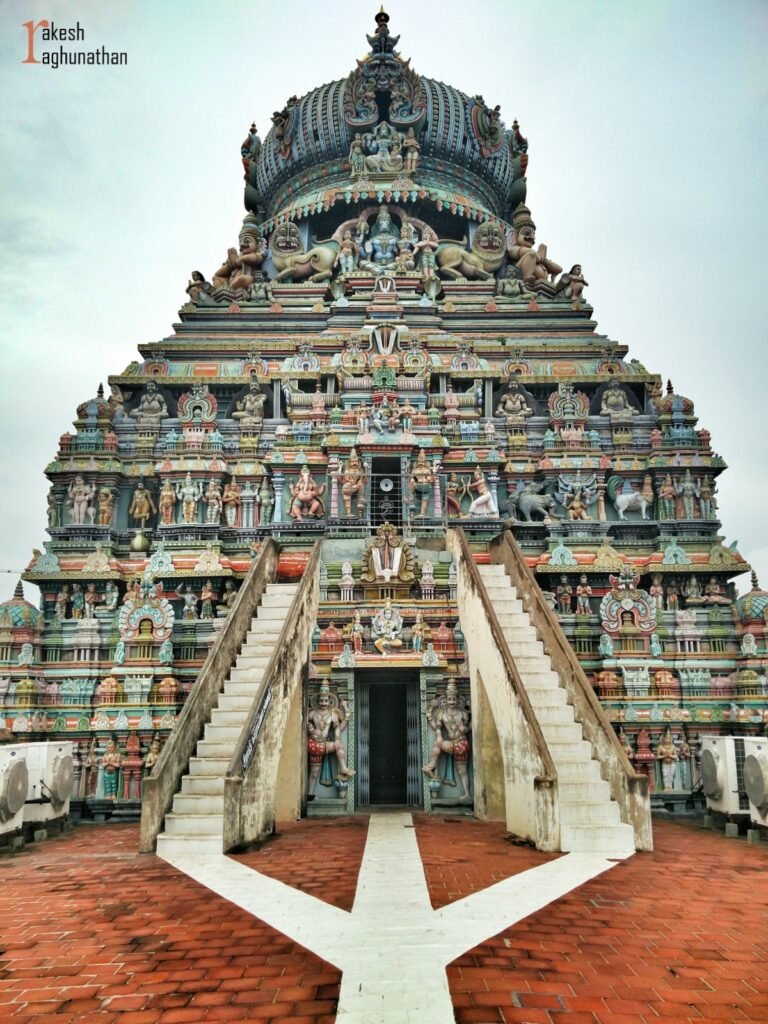
The temple has faced several challenges over the centuries, including invasions and natural disasters. Despite these setbacks, the resilience and devotion of the local communities have ensured its preservation and restoration. The Hindu Religious and Endowment Board of the Government of Tamil Nadu currently oversees the temple’s administration, ensuring its upkeep and smooth functioning of daily rituals and festivals.
In recent years, the temple has embraced modern amenities to accommodate the growing number of pilgrims and tourists. The temple complex now includes facilities such as rest houses, dining halls, and information centers to provide a comfortable and enriching experience for visitors. They have also made efforts to preserve the temple’s architectural and artistic heritage through periodic restoration projects and conservation programs.
Today, the Koodal Azhagar Temple continues to attract devotees and tourists from all over the world, drawn by its spiritual aura and historical significance. The temple stands as a symbol of faith, devotion, and the enduring legacy of the past.
The Koodal Azhagar Temple in Madurai is a testament to the architectural brilliance and cultural richness of Tamil Nadu. Its history, legends, and traditions offer a glimpse into the spiritual and cultural essence of India. As one explores the temple’s hallowed halls and marvels at its intricate carvings, one cannot help but feel a deep connection to the divine and the enduring legacy of devotion that has been passed down through the ages. Whether you are a devotee seeking spiritual solace or a history enthusiast exploring India’s rich heritage, the Koodal Azhagar Temple promises a profound and enriching experience.



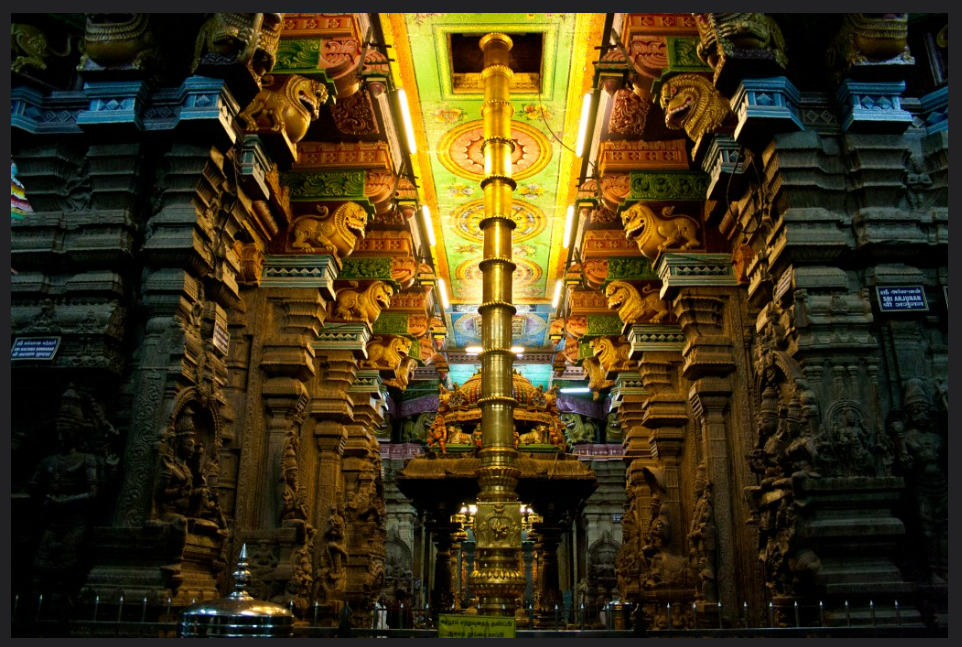
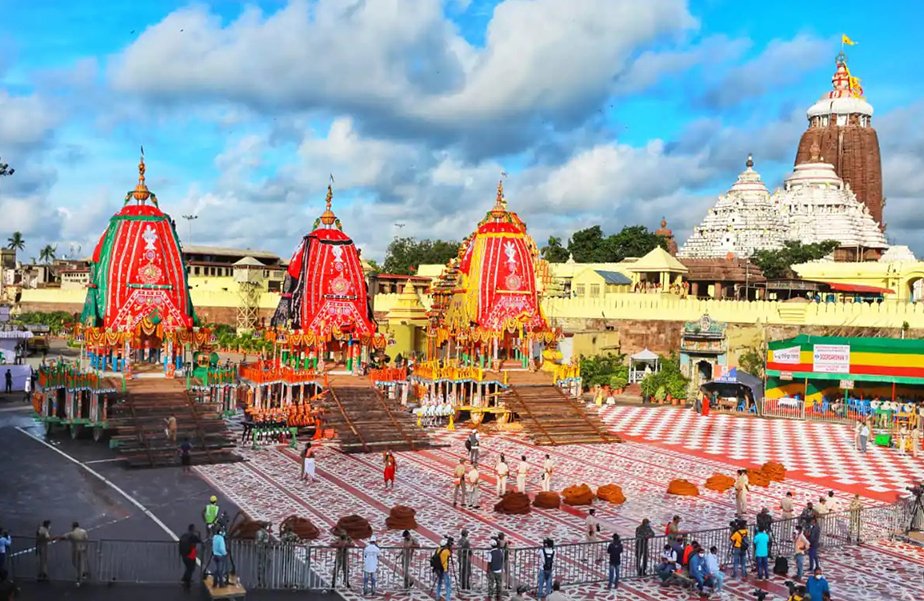
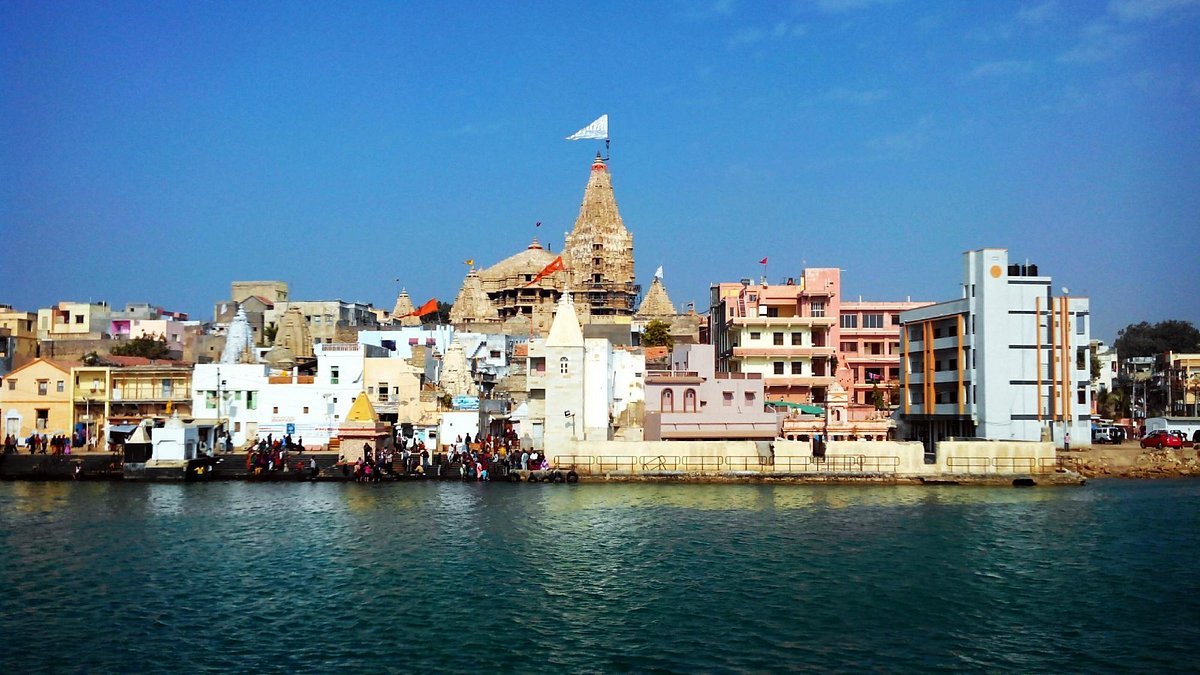

Leave a Reply